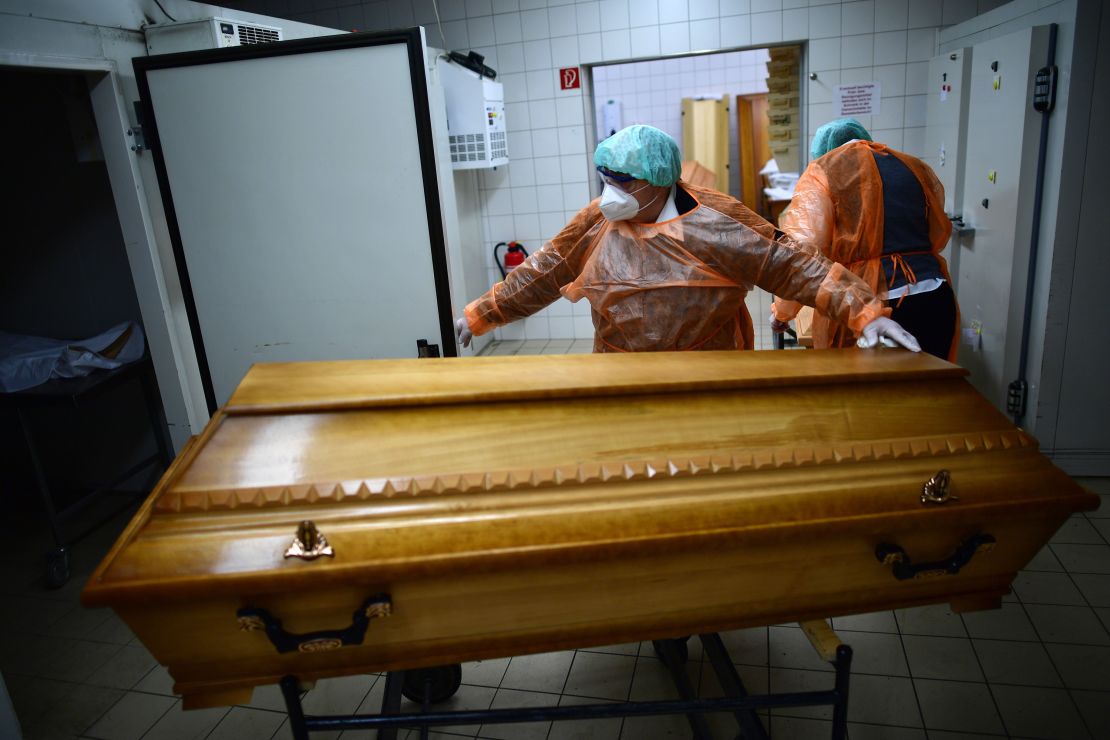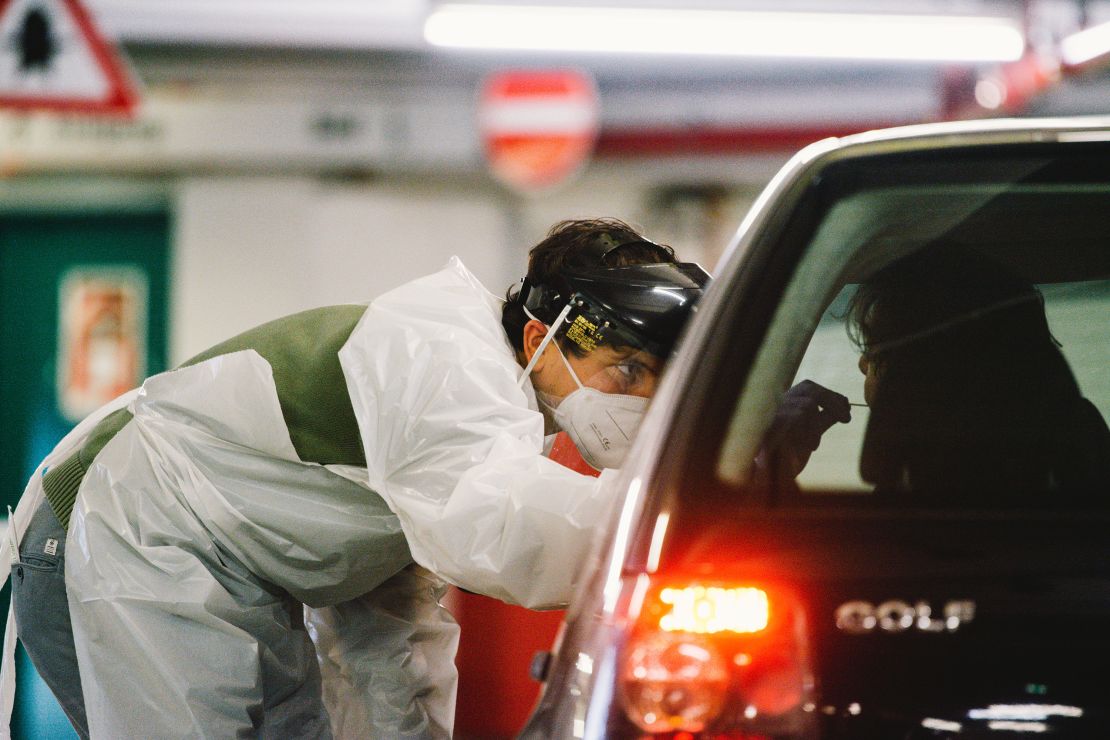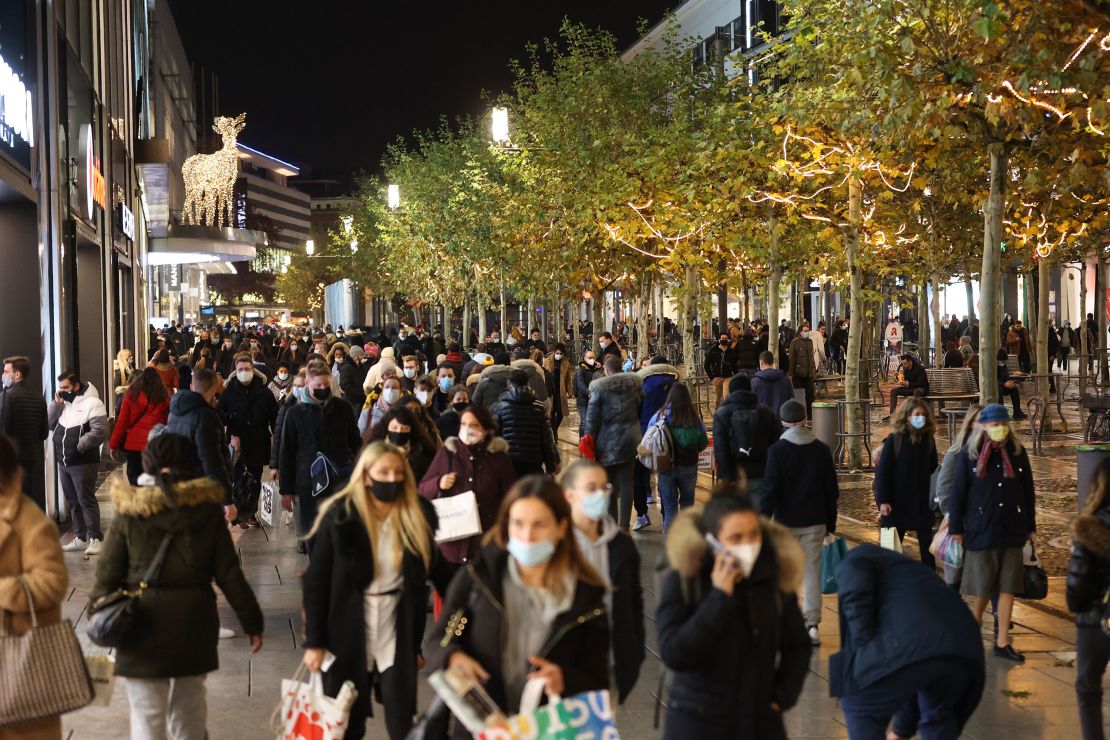Germany shattered its record for Covid-19 deaths in 24 hours on Tuesday with 952 patients dying compared to a previous record of 598 on December 11, according to the country’s center for disease control.
The nation tallied 27,728 new coronavirus cases, the Robert-Koch-Institute (RKI) reported, as it enters a hard national lockdown on Wednesday in an effort to bring the situation under control.
But the institute said a delay in reporting data from the large state of Saxony could be part of the reason for the sharp increase.
Data was not transmitted from Saxony on Monday, so Wednesday’s report includes missing numbers for Monday as well as Tuesday.
The record daily increase in cases, set on December 11, is 29,875.

German leaders have sounded the alarm in recent days as the country faces down a frightening surge in coronavirus infections, hospitalizations and deaths.
The head of the RKI said Tuesday that the situation was “as serious as it has ever been during this pandemic.”
“At the moment, far too many people are getting infected,” Lothar Wieler said, adding that Germany needs to be prepared for “the situation to get worse over Christmas.”
Germany’s Health Minister Jens Spahn joined a number of other European countries in calling on the European Medicines Agency (EMA) to approve the vaccine soon.
He said Germany would be ready to start vaccinating residents “two to four days” after approval.
“The goal is to get approval before Christmas,” Spahn told reporters at a news conference, adding: “We want to start vaccinating in Germany before the end of the year.”

President Frank-Walter Steinmeier on Monday addressed the nation in a rare speech, calling the situation “dead serious.”
“From Wednesday onwards, our public and private life will be more restricted than we have ever seen in the history of the Federal Republic of Germany,” he said, adding that “drastic measures” could not be avoided.
Chancellor Angela Merkel announced the lockdown on Sunday. The new rules will see non-essential retail and services as well schools and kindergartens close until January 10, 2021, and Christmas gatherings will be reduced from 10 people to just five from two different households.
Merkel warned the German parliament a week ago that nationwide restrictions brought in on November 2 had been ineffective and action was needed to prevent exponential growth in the figures.
“If we have too many contacts now before Christmas, and that ends up making it the last Christmas with the grandparents, then we will have failed. We should not do that,” she said, in an unusually impassioned speech.

The head of RKI’s surveillance unit, Ute Rexroth, issued rising numbers of infections and deaths were likely, and said Germany was seeing twice as many infections in care homes than during its first coronavirus spike in spring this year.
The staggering new figures are a cause for major concern, and could send the world’s fourth-largest economy into another recession. It represents a stark warning for other countries battling a Covid-19 winter surge.
Germany was previously hailed for its success in containing the virus thanks to decisive early action, a world-class health system and an exemplary test-and-trace program.
An earlier version of this story misstated the gap in Saxony’s figures released on Wednesday. They included Monday as well as Tuesday.
CNN’s Emma Reynolds and Nadine Schmidt contributed to this report.
